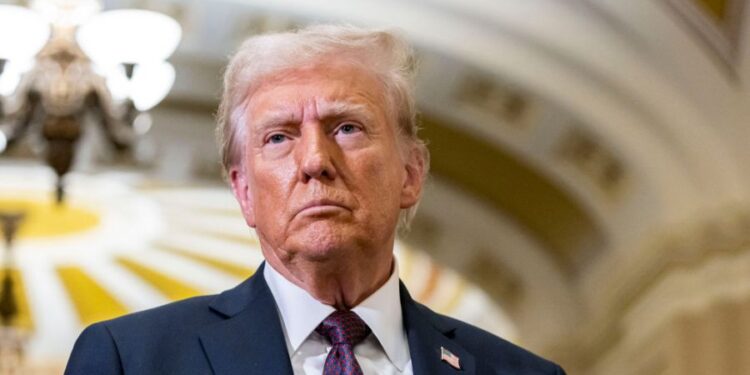
(NewsNation) — President-elect Donald Trump’s Jan. 20 inauguration will be under heightened security in the wake of two national security events — a terror attack in New Orleans and a Cybertruck explosion in Las Vegas.
The event will mark Trump’s non-consecutive return to the White House, ringing in a presidency for a man who faced two assassination attempts during his reelection bid and incited the Jan. 6 Capitol riots after his 2020 loss to Joe Biden.
Are there Inauguration Day security threats?
Law enforcement is preparing for potential demonstrations this time around but is not anticipating any major problems, the Associated Press reported.
In a Capitol Police intelligence assessment report released earlier this month, obtained by ABC News, authorities expect the “civil unrest” trend in 2020 to repeat in 2024.
In an interview with CBS News, FBI Director Christopher Wray said his agency was “not tracking any specific or credible threats to the inauguration.”
“What I would tell you, though, is that we’re dealing with a threat landscape where terrorists, whether they be foreign, jihadist-inspired or domestic terrorists or others, can move from radicalization to action quite quickly, often with very crude but still lethal attacks,” Wray told the outlet.
He pointed to FBI cooperation with state and local law enforcement partners to prevent safety issues.
“What I would tell you is that I have enormous confidence in the FBI’s men and women in our role as supporting the other agencies, which have the primary responsibility for securing the inauguration,” Wray said.
Who is security at Trump’s inauguration?
Roughly 7,800 National Guard soldiers and airmen will join the Secret Service, U.S. Capitol Police, Washington and D.C.’s Metropolitan Police Department to secure the 60th presidential inauguration.
That’s roughly the same amount of guardsmen as Trump’s first inauguration in 2017 and one-third of the guardsmen present at President Joe Biden’s 2021 inauguration, according to NGAUS officials.
The guards will provide security support, crowd management and medical assistance during the event.
“The National Guard is proud to contribute to the safe and orderly inauguration of our 47th commander-in-chief,” Gen. Steven S. Nordhaus, the chief of the National Guard Bureau, said in a statement. “We are immensely proud of the Soldiers and Airmen who will take part in it.”
The FBI and the Department of Homeland Security will also secure the event.
What is the Inauguration Day schedule?
Procession to Capitol: By tradition, a procession to the Capitol will kick off the events.
President Joe Biden, President-elect Trump and their spouses will travel to the White House, escorted by members of the Joint Congressional Committee on Inaugural Ceremonies (JCCIC). The two presidents will meet briefly and then proceed to the Capitol for the swearing-in ceremonies.
Swearing-in ceremonies: Vance will be sworn in first, followed by Trump.
Inaugural address: The chief justice of the Supreme Court will deliver the oath to Trump, who will subsequently give his inaugural address. Every President since George Washington has delivered an inaugural address, according to the JCCIC.
Outgoing presidential departure: After the ceremonies, outgoing President Joe Biden and First Lady Jill Biden will depart the Capitol by plane.
Signing ceremony: In his first official acts in office, Trump will gather with aides and members of Congress in the President’s Room to sign nominations and possibly some memorandums, proclamations or executive orders.
Luncheon: The president, first lady, guests and members of the JCCIC will have a luncheon in the Capitol, a tradition since 1953.
Military review and parade: Finally, the president and vice president will make their way to the east front steps of the Capitol where they review the military troops, who will then lead a parade down Pennsylvania Avenue to the White House. The procession will include ceremonial military regiments, citizens’ groups, marching bands and floats.







